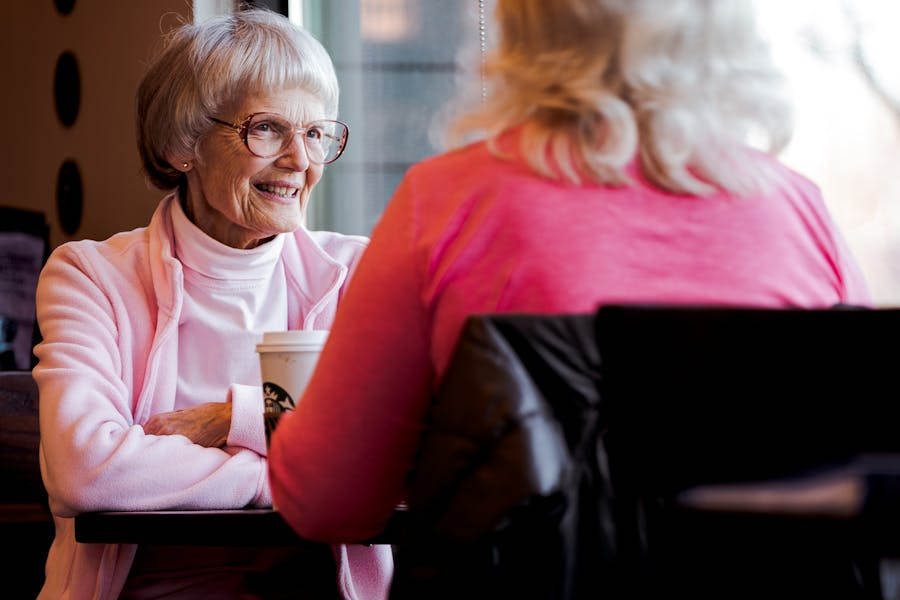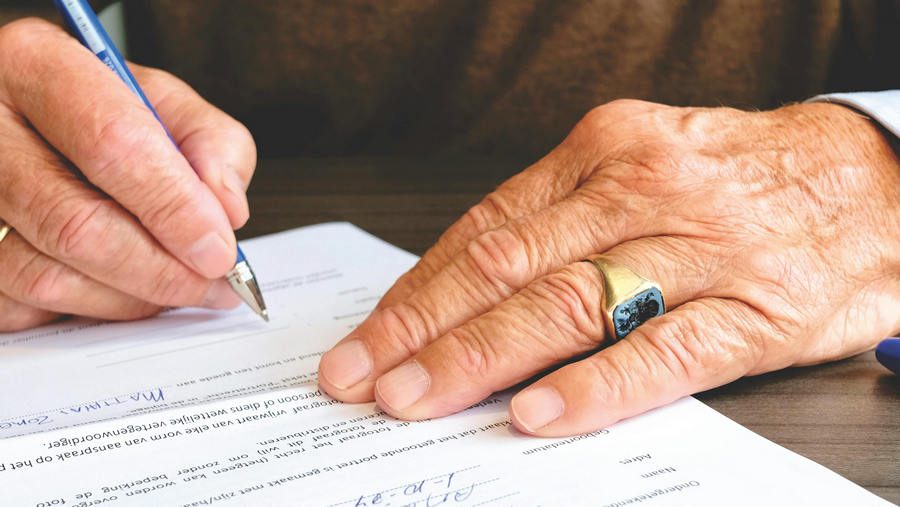This short Alzheimer’s and Dementia Guide is intended for anyone who would like to learn more about Alzheimer’s and any related dementia illnesses. At Applewood Our House, we understand that there are few conditions upon the first diagnosis that strike such terror into loved ones and relatives as Dementia or Alzheimer’s disease. Any dementia diagnosis can provoke feelings of helplessness and despair, coupled with the fear that your loved one will inevitably suffer from a loss of dignity and self-respect.
Applewood Our House – Where New Memories Begin
At Applewood Our House, we want to let our families know that there is hope. Our Mission is to Live Today, Where New Memories Begin, which allows our residents to start a new stage in their life with the support of their families and our caregivers to create new memories.
We are an encouraging and supportive community and believe that the quality of life of our loved ones with dementia can be dramatically improved, and their dignity and self-respect renewed.
Families can feel informed and INCLUDED as opposed to many who often feel isolated. We are a loving community of skilled caregivers and advocates who will educate and support our families through this journey.

What is Dementia – An Overview

Dementia is medically defined as the slow decline of the ability to reason, remember and learn new information. As the disease progresses, the ability to function decreases typically, as does one’s ability to adequately perform ADL’s (Activities of Daily Living).
In the early stages of dementia, it may be difficult for individuals to efficiently perform activities as being able to do household chores, cooking, cleaning, or driving.
In later stages of dementia, many individuals lose their ability to perform functions that many of us take for granted such as maintaining proper hygiene, dressing and toileting ourselves.
Dementia was once referred to as “senility,” and most people just accepted that this severe memory loss was a regular part of the aging process. Through much testing, analysis, research, and studies, we now know that dementia is NOT a normal part of the aging process.
There are approximately five million people, in the United States alone, that are currently dealing with some form of dementia in some stage or degree. According to the CDC, it is the sixth leading cause of death in the U.S.
Can Dementia be Cured?
There is no known cure for Alzheimer’s or other types of dementia. However, in a few scenarios, Dementia symptoms can be reversed. For example, it is possible to treat a vitamin B12 deficiency; hypothyroidism (under-active thyroid glands); a buildup of fluid on the brain or an operable brain tumor, thus reversing the effect it is having on the body’s system.
If a person is depressed, a symptom such as memory failure becomes apparent and can worsen if depression is not treated and dealt with appropriately. Depression can be easily reserved by having and keeping an active social life. Some medications can assist in helping a person out of a depressed mood.

Many times depression is mistaken for dementia, so make sure you visit with a health care provider before jumping to conclusions.
There are some medications, whether prescribed or over the counter that can cause dementia-like symptoms. Make sure your doctor knows all of the medicines, supplements, vitamins, and herbs that you are currently taking. If you have multiple doctors make sure they each know what the other is prescribing as a course of treatment.
Never take dementia lightly, because it is a severe medical disorder – it comes at a high cost (personally, emotionally and financially). While there is no cure for dementia, it is usually a slowly progressive disease, and some patients can stay at one stage for years with the right treatment and support – while other patients plagued with this disease will lose their skills at a much quicker pace.
As Dementia does progress, all areas of the brain that are associated with intellectual functions are affected.
Some examples being:
- patients become unaware of their surroundings
- unable to recall names of spouse or children
- they will lose their ability to reason or think abstractly
- they will lose their ability to speak and care for themselves

Many of us might have a panic attack if they forget someone’s name or are unable to remember where they placed their reading glasses (but later remember where they are). This is NOT Dementia, but a less severe and prevalent condition that is a normal part of the aging process. The medical profession refers to this as “Benign Senescent Forgetfulness” or “Age-related memory loss.”
This condition is annoying and can certainly be a nuisance to you and others around you, but it does not stop or interfere with the personal ability to learn new facts or skills (which is one of the tell-tale signs of Dementia). In rare cases, there have been persons diagnosed with dementia before the age of 60 years old, but after 85 years of age, there is a 50% chance that you have it.
If you suspect yourself or a loved one are showing the early signs of dementia, a visit to the doctor is more than advisable. Make sure that you go with a loved one that knows your medical history and other details that could be helpful in the diagnosis.
The doctor will ask you simple details, like the year, the day of the week or count backward by two’s. The doctor will then order or run more tests, like blood work for an underlying issue, an overactive thyroid or an infection. The doctor will then have an MRI and a CT scan, to assist them in determining whether a tumor or a brain injury caused the problem. These tests can also show if some regions of your brain are shrinking, and could be signs of dementia.
There is no cure for dementia, but it’s possible to treat the symptoms. Medications often make it easier to live with and slow down the progression. Dementia is a family affair, and it affects everyone. We encourage counseling, patience and a support group for all involved.
What’s Next for People Recently Diagnosed with Dementia
The Alzheimer’s and Dementia Guide is primarily for people recently diagnosed with dementia and for their families. It will provide reassurance, practical tips on what to expect and what preparations will be necessary.
Find Support Groups – One of the very first things you would want to do after a recent diagnosis of dementia is get connected with a support group. Either online or a face-to-face support network will not only provide you with valuable resources; they understand how you are feeling. Having worked through the shock of their diagnoses, many people are able to give you the tools that you might need in dealing with the variety of emotions you are going to experiences (sadness, anxiety, anger, and fear would make the top of the list for sure, and denial isn’t an uncommon reaction either).

Education – “Education is Power” my mother always says. Learn as much as you can about the type of Dementia you have been recently diagnosed. If you are the spouse or an adult child of someone diagnosed with dementia, it is just as vital for you to understand the disease as it is for them to understand it. There is no doubt that Dementia will cause you to make some lifestyle changes, but the families equipped to ask the right questions and look for solutions are the ones who are best able to cope with the changes that Dementia can bring on.
Stay Positive – Staying positive and active will make your life more fulfilling. Some things to do to relax, recommended by people that are currently dealing with first stage dementia, include:
- gardening
- spending time with pets
- exercise
- going outside and breathing fresh air
- listening to soothing music
- going out with friends
- volunteering (when you help others, it distracts you from dwelling on negative things and makes you feel good about yourself).
You want to remain as independent as possible – but don’t be stubborn – realize your limitations. Dementia is usually a slow-moving disease, so living generally for quite some time is not unrealistic. Enjoy and embrace the wonders of this world.
Take Care of Legal Paperwork Early

Plan Ahead – Plan, so you have as much control as possible over the decisions of the care you want. Having legal and financial affairs in order while you can make clear-minded decisions will take the burden off your loved ones to make those decisions for you. Once all legal and financial documents are in order, make sure everything is in one area and easily accessible to your caregiver (or whoever you decide to inform).
Put Bills on Autopay – An easy and effective way to reduce stress is to have your regular household bills put on an automatic payment plan. Ask for assist the assistance of a bank representative and computer that has internet capability.
Have a Current Will – A Will is a legal document that should ensure, when you die, that your assets (possessions and monies) go to the people that you have handpicked.
Schedule Doctor Visits – It is essential to keep up regular doctor visits and also dental, hearing and sight testing. The reasoning behind this is that any problems with your eyesight can add to the confusion. Any hearing loss or ringing sounds in the ear can lead to continued isolation and possibly cause dizziness if there is an equilibrium imbalance.
Without proper dental check-ups and professional cleaning, gums, teeth, and dentures can cause added, unwanted discomfort and stress and infection. Seeing your regular (general practitioner) doctor when you are feeling physically ill is a smart move, so there can be a quick diagnosis and treatment. Some medical conditions add to the confusion (infection of the legs and chest and constipation are just a couple to mention). Once adequately treated, the unwarranted, added confusion will disappear.
Below we have listed a few resources that can directly assist you or direct you to how to get your needs met:
Our Stepping Stones – Our Stepping Stones is a program from Applewood Our House that helps families with housing options for elders. We aim to help you reach your short-term or long-term for senior housing placement.
For more information, reach Malou van Eijk at +3039569037 or visit any Applewood Our House location.
ADEAR has information on patient care, caregiver needs, the latest research information, and clinical trial database. Their online publications are offered in English and also in Spanish.
Alzheimer’s Disease Education and Referral Center (ADEAR), P.O. Box 8250 Silver Spring, MD 20907-8250, 1-800-438-4380
Alzheimer’s Association – The Alzheimer’s Association is a non-profit organization that provides excellent support and education. You can reach them toll-free at 1-800-272-3900.
We hope you have enjoyed the Applewood Our House Alzheimer’s and Dementia Guide.

